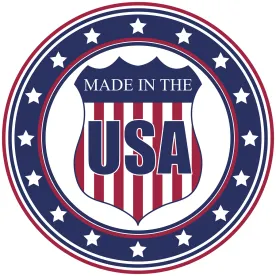The U.S. Federal Trade Commission (FTC) recently finalized a rule, which became effective August 13, 2021, to deter what the FTC refers to as “Rampant Made in USA Fraud.” The rule does not impose any new requirements on advertisers, but codifies the FTC’s long-established enforcement policy regarding unqualified claims that (i) expressly state products are of U.S. origin (e.g., “Made in USA”) or (ii) imply products are of U.S. origin. The rule signals to advertisers that U.S. origin claims will continue to be an enforcement priority for the FTC. Further, under the new rule the FTC may now seek civil penalties of up to $43,280 per violation. Accordingly, advertisers should confirm they meet certain requirements prior to making any express or implied claim that products are of U.S. origin.
Before this rule, the FTC promulgated guidance to advertisers for making unqualified U.S. origin claims, and until now, it enforced such claims under Section 5 of the FTC Act, which generally prohibits unfair and deceptive advertising. Under that authority, the FTC pursued significant remedies for advertisers wrongly touting U.S. origin claims, and recently obtained a $1.2 million settlement against a glue manufacturer alleged to have falsely claimed its products were “Made in USA.”
Consistent with prior FTC guidance, the new rule codifies the principle that any unqualified claim, express or implied, that a product, service, or specified component thereof, is of U.S. origin, must contain no more than a “de minimis” or “negligible” amount of foreign content. More specifically, product labels and advertising may not contain an express or implied unqualified U.S. origin claim about a product, service, or specified component thereof, unless:
(1) final assembly or processing of the product occurs in the United States;
(2) all significant processing that goes into the product occurs in the United States; and
(3) all or virtually all ingredients or components of the product are made and sourced in the United States.
Notably, the FTC declined to define the “all or virtually all” element in the rule, and acknowledged there is no bright line rule for determining whether that has been met. Rather, the FTC’s prior guidance, orders, and staff closing letters will serve as guidance to assess this element. Specifically, the FTC will continue to consider a number of factors, including “the portion of the product’s total manufacturing costs attributable to U.S. parts and processing; how far removed from the finished product any foreign content is; and the importance of the foreign content to the form or function of the product.”
The new rule does not cover qualified claims (e.g., those indicating the amount of U.S. content, that parts or materials are imported, or claims about specific processes or parts). The FTC will continue to enforce such qualified claims under its general authority under Section 5 of the FTC Act, and advertisers should still consult the FTC’s prior guidance before making qualified claims of U.S. origin.
In any case, advertisers should carefully assess whether their labels or advertisements make an express or implied claim of U.S. origin, and if yes, whether it complies with the FTC’s new rule and prior guidance.





 />i
/>i

